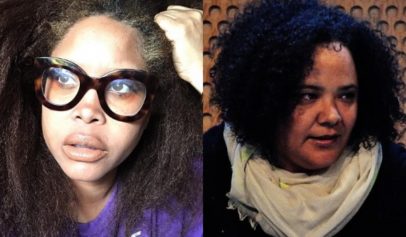Esperanza Spalding, the 28-year-old bassist, composer and vocalist, is shushing her audience – many of whom have paid good money for the privilege. During the middle of her set at Chicago’s City Winery, a trendy restaurant and music venue, she holds the microphone close and admonishes: “Sssshh.” Her virtuoso bass playing and spellbinding vocals had the audience in the palm of her hand for the first half of her show. But an extended instrumental interlude showcasing her band has been marred by talking in the crowd. “I wanna hear them,” she tells her listeners, gesturing toward her 12-piece ensemble.
There’s nervous laughter from the audience. A woman near me indignantly objects that this is a supper club – but does so only in a whisper. The entire moment lasts no more than ten seconds. The audience immediately complies, obliging the performers with attentive silence.
In 2011, Spalding found herself onstage and on millions of television screens, collecting a Grammy Award in the Best New Artist category (and sending fans of pop post-teen sensation Justin Bieber, who lost out, into irate Twitter rants).
Her youth and beauty and progressive fashion-she accepted her Grammy in a deconstructed citron chiffon dress and a very intentional afro coaxed into a pompadour-were also an undeniable part of her appeal. Village Voice music critic Greg Tate calls Spalding the “sexiest and best thing to happen to jazz since Wynton.”
Her latest release at the time of the Grammy, Chamber Music Society, was actually her third album. She had already dazzled critics with her 2008 major-label debut, Esperanza, recorded when she was 23; it stayed on the Billboard jazz chart for 62 weeks, peaking at No. 3. In 2009, she performed twice at the White House and, at President Obama’s request, at the ceremony when he was awarded the Nobel Peace Prize in Oslo that year. “I wanted to offer something important from our culture, from our music,” she says. “It seemed significant to play jazz there.” (She donated the dress she wore to the Smithsonian National Museum of American History.)
Spalding went on to elicit praise for this year’s Radio Music Society, executed, according to Los Angeles Times music critic Chris Barton, “with disarming assurance.” The new album, wrote jazz critic Larry Blumenfeld in the Wall Street Journal, “celebrates sophisticated musical structures that ride accessible grooves.”
Her work is grounded in original compositions and performances moored artfully in jazz, but incorporating influences as varied as soul, Brazilian pop, funk, contemporary classical, blues and hip-hop. Spalding’s vocal compositions range from “Little Fly,” a William Blake poem set to music, to “Land of the Free,” based on the exoneration of Cornelius Dupree, recently released from prison after a wrongful conviction, and “Radio Song,” a paean to the serendipitous pleasure of discovering a song over the airwaves.
Legendary bass player Ron Carter, who collaborated with Miles Davis, helping him shift the music from bop to cool, says Spalding is “on the right track, she’s got a great voice and a great sound. I like the combination of her lyrics with the sound she gets from her bass. I can’t talk and play at the same time, let alone sing, so she’s a step ahead of me.” Electric bassist Meshell Ndegeocello-known for her own capacity to rap while she plays-is also impressed with the scope of Spalding’s gifts. “What makes her so phenomenal is she can speak so fluidly with her bass and her vocals.”
Read more: dream hampton, Smithsonian


